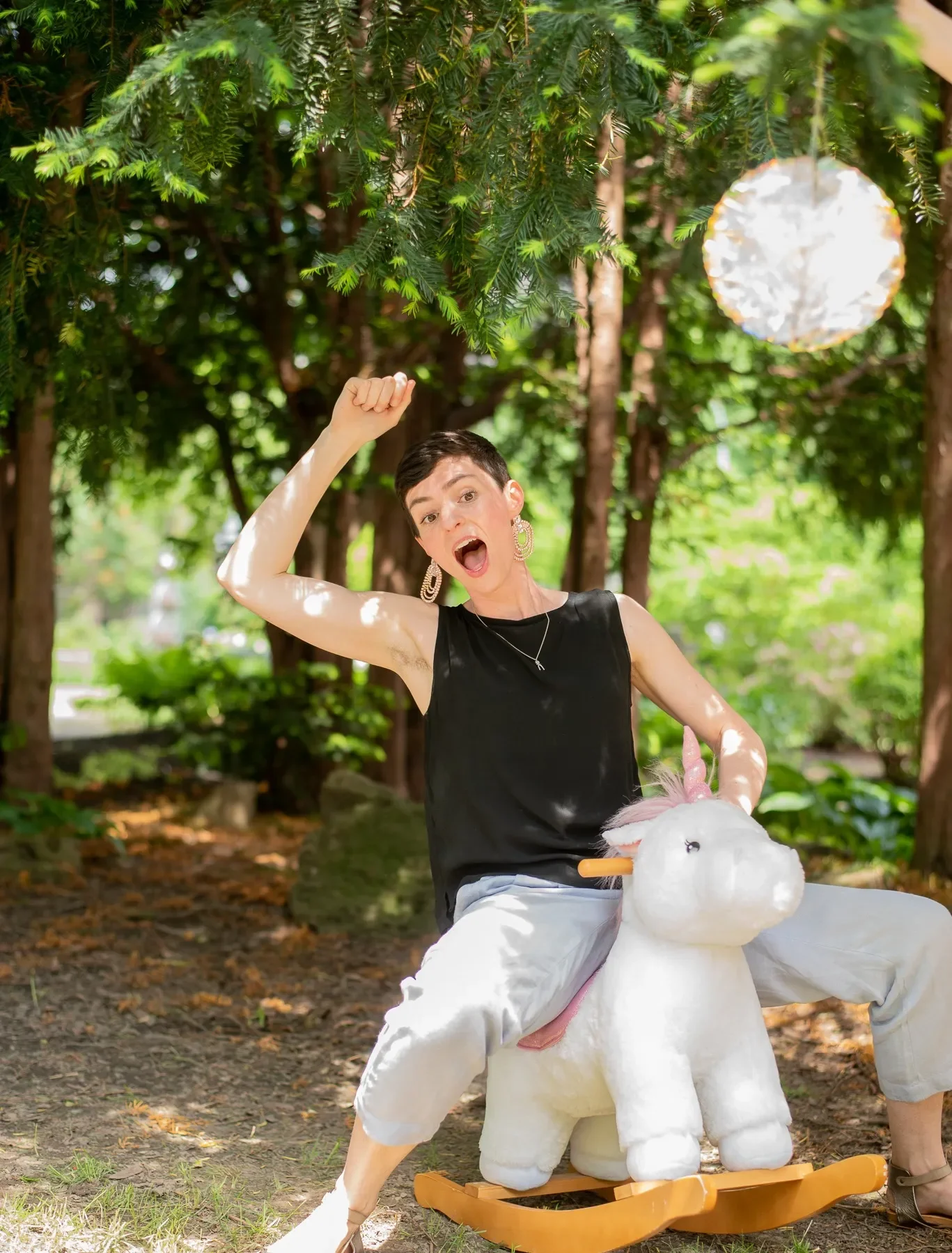I hate wellness - and I'm in the biz anyway: Female Disruptor Series #2
This is part 2 of an interview I did with Authority Magazine as part of their Female Disruptors series. We talk about trauma-informed work, self-care with via collective and systemic lenses, and what it takes to do things differently—without burning out. Each week, I’ll share a short excerpt that offers insight, reflection, or a little spark of disruption. You can find the original interview here.
Authority Magazine: Can you tell our readers what it is about the work you’re doing that’s disruptive?
Adair: I joke that even though I hate “wellness,” I’m in the business anyways. I say I hate wellness because it’s commodified in our culture, and it shouldn’t be — everyone should have access to what they need for their wellbeing. I’m passionate about disrupting how we think about wellness and self-care — especially for healers, changemakers, and helping professionals.
Even though it’s central to my work, I don’t love the term “self-care.” I use it because people can easily understand it, but here’s the issue: while personal responsibility for taking care of ourselves is essential, conversations about self-care and burnout rarely take a systemic approach.
As a social worker, I’m trained to view people in environments.
If we focus on self-care without taking into account the impacts of late stage capitalism, patriarchy, and supremacy culture on people who are burning out, we’re missing a critical piece of the conversation.
Once we’re clear on the problem (and it’s kind of amazing how often systems aren’t part of conversations about self-care), we can build solutions.
I encourage this approach to self-care:
Identify what you can change — even while embedded in systems that don’t necessarily prioritize your wellbeing. It’s kind of like looking around your space for what’s blue — once you start looking, the amount of “blue” you see might surprise you. For example, you have the ability to change your breath pattern at pretty much any moment. And since we know that certain breathing patterns have a strong effect on our physiology and mental states, that’s a powerful tool.
Find community support. Seek the junction of self-care and collective care in your life. By learning self-care in a community with people who have similar experiences and challenges, we gain traction, creativity, and accountability via connection.
I love having an accountability partner. Not because they hold me accountable — rather, because having an accountability partner helps me maintain my accountability to myself. Speaking my intentions out loud/in text to someone I trust, and then following up to let them know I did the thing — this is how I keep my word to myself. And that’s important — because keeping my word to myself makes it easier to my word in relationship with others.
Interested in working together 1:1 or having me in for a workshop at your workplace or organization?

